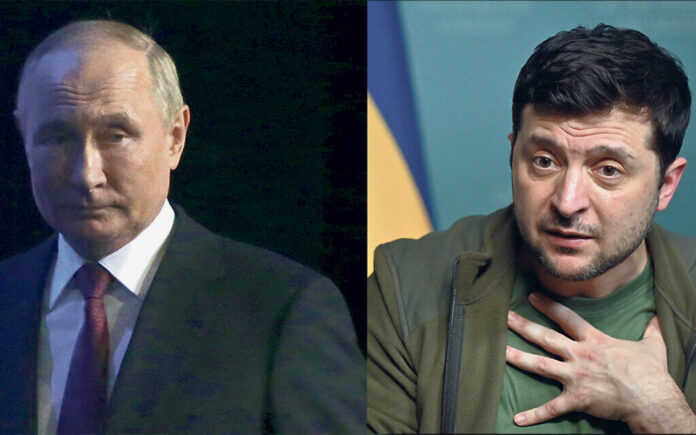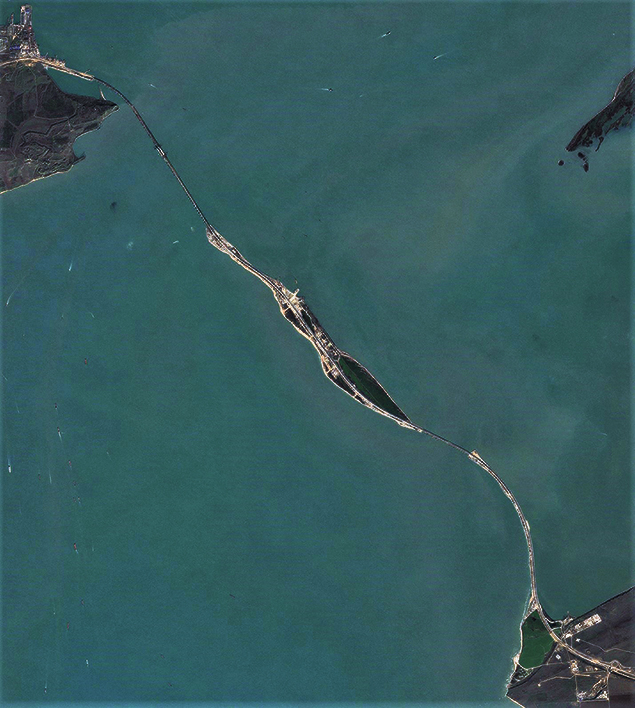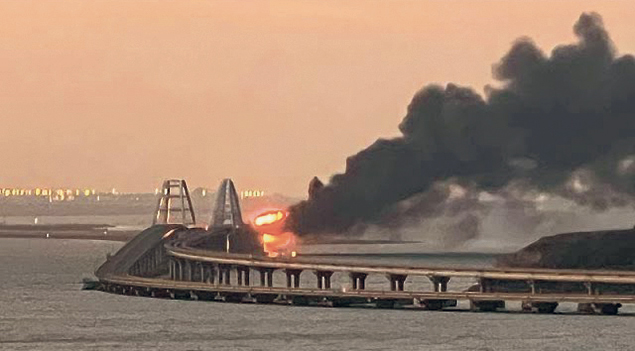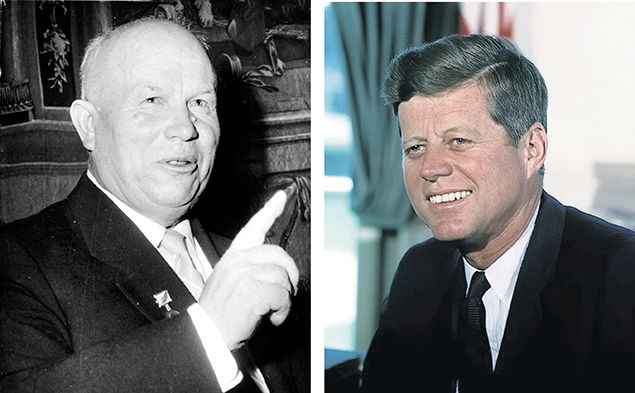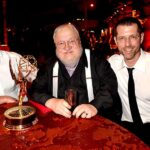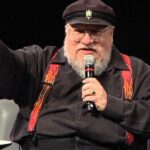At least according to legend, Russians are a gloomy lot; really, who can blame them.
As for us Jews, well, although we know that dreams can come true — if you will it, it is no dream, Herzl told us — our history has shown us that nightmares happen in broad daylight in real life as well.
So if you are a Russian Jew, like Alexander Smukler of Montclair, darkness can come easily to you.
So does a clarity of vision, which has nothing to do with not caring about the outcome. Mr. Smukler, who has been analyzing the Russian invasion of Ukraine for us since it began on February 24, cares deeply about the outcome. He, his wife, and the two oldest of their three sons left the Soviet Union in 1991, just months before it fell; a committed American by choice, he has put a great deal of heart and mind into doing what he can to help Russian Jews and his adopted homeland. He wants Ukraine to win; he wants the United States to stay strong and safe, and he wants that situation to prevail in the rest of the world as well.
Which makes his view of the situation in Ukraine particularly grim.
In chess, Mr. Smukler said, zugzwang means that the player whose turn it is to make a move cannot make a good one. Every available choice is a disastrous one. In political science, “it means that every move from every side in any situation will worsen that situation,” he said.
“We have reached the point, in this eighth month of the Russian invasion of Ukraine, where every move from each side seems to me to be dangerous for the world.”
In the two weeks since our last story, he said, much has happened, and certainly our readers know about most of it. First, there is “the incredible sabotage of the bridge.” That’s the explosion that demolished part of the Kerch Strait Bridge that connects Crimea to Russia; the masterstroke hit at Russia, and at its president, the Angry Dwarf himself, Vladimir Putin, at once symbolically and logistically.
The bridge was built in 2014, right after Russians annexed Crimea in a move that the world saw as both illegal and generally ignorable. “It was built as quickly as possible, and it is a unique engineering infrastructure,” Mr. Smukler said. “It is the longest bridge in Europe. It was built in a very difficult environment, and it is the major blood vessel because of its part in getting weaponry and other supplies to the Russian army on the southern front.”
The environment is difficult, he explained, because the bridge spans Kerch Strait connecting the Black Sea and the Azov Sea,” which is considered part of the Black Sea. “There are strong currents and extremely strong winds there,” Mr. Smukler said. “And though most of the Azov Sea is not deep at all, in this place it is pretty deep, and the terrain under the water is extremely complicated. So from an engineering point of view, it is a unique structure.
“It was built by the oligarch Arkady Rotenberg,” he continued. “He’s Jewish, and he’s known as one of Putin’s best friends. They were friends as kids; he and his brother, Boris, are known as Putin’s best friends. They were all in a martial arts class together; they were sparring partners.” The brothers own a construction company, among many other things.
“They are of course under sanctions,” he added.
Ukraine has not taken responsibility for the explosion on the bridge, which happened on October 8, “but obviously they did it,” Mr. Smukler said, although it is not clear exactly who or how it happened. “It was done highly professionally. It is a unique operation in the history of secret intelligence operations, because of the way it was done. The experts were so surprised when it happened.”
For days, it was not clear what happened, but it seems that “a huge truck was exploded right below a railway train that also was crossing the bridge on the upper level” — the bridge has two levels. “The train was carrying oil tankers. So when the truck was exploded, the train was set on fire, and it caused incredible damage to the bridge.
“It interrupted the supply to the Russian army, because heavy trucks are not allowed to use it, and that will be for an unspecified amount of time, until it’s fully rebuilt.”
The explosion happened the day after Putin’s 70th birthday. “It was a gift to him,” Mr. Smukler said. “A birthday surprise.”
Russian officials have released what they say are the details of the bombing. They’ve arrested eight people, five Russians, two Ukrainians, and an Armenian. The truck was rented, and the driver died in the explosion. He was not a suicide bomber, the Russians say; he thought he was carrying fertilizer.
“After it happened, Putin was devastated,” Mr. Smukler said. “Remember that after the successful Ukrainian counteroffensive in Kharkiv, I said that Putin will hit back ten times harder, because that is the law of the street gangs.” That’s something that Mr. Smukler knows about; like Putin, he grew up in a collective apartment building, although Mr. Smukler’s was in Moscow and Putin’s in St. Petersburg. The life was collective in that each family had its own minuscule connected bedroom, but shared the kitchen, dining room, and bathroom with others. Unlike the practice in kibbutzim, each family was responsible for itself alone, cooking and cleaning alongside others but alone nonetheless.
Kids spent most of the time when they were not in school outside, because there was nothing to do and no place to do it inside. Putin was a small, physically unprepossessing child; he made up for that with cunning, bravado, cheating, and all-around meanness.
Given his understanding of Putin’s background, Mr. Smukler often can tell what his reaction to a situation will be.
In this case, not only was Mr. Smukler unfortunately correct, he was proven to be so very quickly.
“Right after his birthday” — that is, right after the bridge explosion — “the Russians launched almost 80 heavy missiles from different points in Russia, including from the Caspian and Black seas. The Ukrainian antimissile system intercepted about 40 of them, but about 40 reached their targets.
“As we know, the Ukrainian power stations in different cities were hit terribly. And a few missiles missed their targets and hit private buildings.”
Come on, Sacha. They missed their targets? Didn’t they do it on purpose? Mr. Smukler sighed. “I don’t know if it was intentional,” he said. “In Mykolaiv, when the missile hit a five-story apartment building — I don’t know if it was intentional, but I want to believe that it missed its target — an 11-year boy died.
“He was buried under the ruins. They found him after six hours, they took him to a hospital, and he died there a few hours later.
“We do know that Putin’s army is bombing and sending missiles into apartment buildings and places where civilians go, including schools and parks, because they want the Ukrainians to be scared. They want them to push Zelensky to negotiate with Putin to stop the war. They are trying to scare the civilian population by hitting towns and buildings and homes and schools. It is part of their psychological war.
“Still, in my mind I just can’t believe that someone knows that he is sending missiles to a five-story building where civilians live, and just pushing a button. Maybe they don’t know what the target is. Maybe they just don’t know.”
No matter what the button-pushing bomber may or may not know, the reaction to the Kerch bridge explosion was “the most massive missile attack on Ukraine since February 24. It destroyed almost 30 percent of Ukraine’s power stations and electric supply infrastructure.”
There have been so many heart-rending stories coming out of the Russian invasion. There is also the story of the Ukrainian musician Yuriy Kerpatenko of Kherson, conductor of the Gileya chamber orchestra and the Mykola Kulish Music and Drama Theatre, who had been posting anti-Russian messages on social media. Russia demanded that he lead a concert in the occupied city, “intended by the occupiers to demonstrate the so-called ‘improvement of peaceful life’ in Kherson,” according to the Ukrainian foreign ministry. Russian soldiers came to his house to make the demand, he refused, and they shot and killed him. “He is one of the casualties, one of the thousands of people who lost their lives during these eight months,” Mr. Smukler said. And, he said, “that’s on both sides.” As far as we know now, the man who drove the truck that blew up on the Kerch bridge was a victim too.
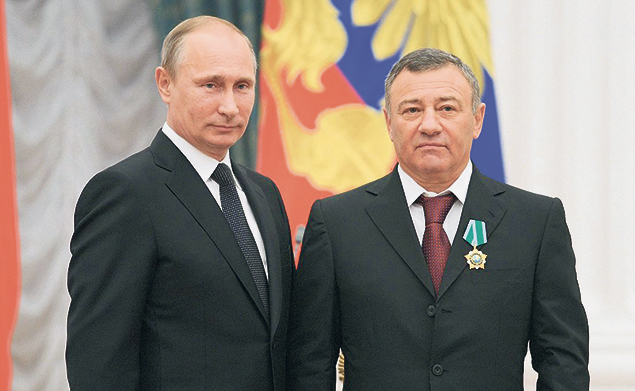
Vladimir Putin is with his old friend, oligarch Arkady Rotenberg, who built the Kerch Strait Bridge. (Wikimedia Commons)
Meanwhile, on the Ukrainian side, “they are continuing their counteroffensive in different directions,” Mr. Smukler said. “They are now fighting to de-occupy — to liberate — Kherson City, the capital of the Kherson region. If that happens — and most military experts agree that it will happen in the next couple of weeks — it will put Putin in such a touchy situation.
That’s because Putin already declared Kherson, like three other regions, to be a Russian territory.”
The operation seems likely to fail. “It seems to me that the Russians do not have the human resources to hold Kherson, and this weekend the newly appointed head of the administration announced that the civilian population will be evacuated into Russia, and the Russian army will try to defend it.” (That new administration head, Volodymyr Saldo, was appointed by the Russians, and does their bidding.)
But whoops, there’s a problem.
“In the last few weeks, Putin signed a decree announcing the annexation of four Ukrainian regions,” Mr. Smukler said. On September 30, after a vote that Putin asserted to be legitimate but most of the rest of the world dismissed as forced and illegal, the Russian president “signed a decree saying the annexation of those regions” — Luhansk, Donetsk, Zaporizhzhia, and Kherson – was official. “Not only did he sign the presidential decree, which was preapproved by both houses of the parliament, but they changed the constitution, which now mentions the regions.
“By doing this, Putin closed any door for any possible future negotiations about the territories.
“But the irony of it is that they do not control them.
“They don’t control all of any of them. They do not control a large part of the territory of Zaporizhzhia, not even the capital city, and they do not control 100 percent of the Donetsk area, and they do not control a huge part of Kherson. So basically, they annexed territories that in practice do not belong to them.”
To make matters worse — more humiliating, more dangerous — for Putin, on October 12, “the United Nations’ General Assembly adopted a resolution condemning Russia’s annexation of the territories. “The resolution says that the U.N. and its members will never approve of the annexation and will never recognize the territories as part of Russia.
“For Putin, this is crazy.
“One hundred and forty-three states voted in favor of this resolution, and another 35 abstained, including China, Brazil, Kazakhstan, and Armenia. India refused to participate.” (That’s a degree of distance even greater than an abstention provides.) And only five states in the world voted against the resolution condemning Russia.”
Which five states? “North Korea, Syria, Iran, Belarus, and Russia.”
Great company, right?
“Now we can see Russia’s incredible isolation,” Mr. Smukler said. “Never before, even during the Cold War, was it in this situation. It has become a real pariah, like North Korea or Iran.
“This resolution is a way to understand what’s going on in the world right now.”
He compared it to 2014, when Russia invaded and snatched Crimea. “There were U.N. resolutions then, but they were never as strong, and they were supported by far fewer countries.” The situation wasn’t entirely the same, he added; many Crimeans are Russian by background, and they welcomed Putin. Also, that was then. Still, the world responded far more calmly in 2014 than it did in 2022.
But now that Putin seems to have foreclosed all face-saving options, now that the street thug has only one way out, and that’s with all guns blazing, no matter what it does to everyone around him — in his case, to the whole world — what will happen next?
“Putin said that we are going to defend our territories and the people who live there with every possible weapon that we have, including mass destruction weaponry,” Mr. Smukler said. “He did not use the words ‘nuke’ or ‘nuclear weaponry,’ but that is what he meant.
“And he said that it was not a bluff.
“As we know, during a recent fundraiser, President Biden said that we should take the nuclear threat very seriously. He said that he has known Putin for a long time, and that he is not bluffing. He said that the world is on the verge of Armageddon.
“The stakes in this game are extremely high. If I could ask our president and our government anything, it would be what the hell are they doing to resolve the situation. If we are in a similar situation now to what we were in during the Cuban missile crisis in 1962, I want to know what to expect. I want to know what our government is doing.
“This is the zugzwang in the global game of thrones.”
To make everything clear, Mr. Smukler said, “by changing the Russian constitution and officially annexing the four regions, Putin left himself no room to negotiate. He cannot give up the territories in exchange for any compromises with Ukraine and with the West.
“The Russian constitution has a very strong article that says that no ruler of the country is allowed to negotiate any territorial sacrifice. Neither can the parliament. It can be done only by referendum.
“I think that he did it for a reason. It’s the zugzwang. He has to show all his supporters, and specifically the Russian army and the Russian population, that there is no way back. ‘We have to fight. This is a holy war. It is a patriotic war. We cannot negotiate.’
“That is why he was in such a hurry to annex those four territories legally. Nobody in the world could understand what the hell he was doing, but I think that in his mind, he was trying to show his street gangs that there is no way back. ‘We have to fight to win. We cannot lose. There is no point to negotiation.’
“We all want Ukraine to win,” Mr. Smukler said. “We all want Putin to be defeated on the battlefield. But we have to understand that the more weaponry we supply to Ukraine, the more they sacrifice the lives of their soldiers and kill Russians on the battlefield, the more they move to their borders and liberate their land, that Putin always will have this last card in his pocket. The death card. He can use nukes.”
The tone of the rhetoric coming out of Russia has changed, Mr. Smukler said. It used to be about de-Nazifying Ukraine, about de-militarizing and purifying it. Now, though, it’s entirely about removing Zelensky and his government, and “replacing them with whatever pocket government they want,” Mr. Smukler said.
So he presents the other side of the zugzwang, the possible terrible arrow from the quiver full of arrows of doom.
“Let’s imagine that Putin moves forward with conventional weaponry, and his army gets to Kyiv and defeats Ukraine and the collective West,” he said. “That would mean that the U.S. and NATO lost the war to Putin. That democracy has lost to brutal dictatorship. That’s hard to imagine — but let’s try.
“There would be no exit. If Putin wins, the West cannot accept his victory, because that would be the victory of dictatorship. But if we continue to supply more and more sophisticated weaponry, including long-range missiles and aircraft and tanks, and we finance it, and if the Ukrainians, who have become amazing warriors, defeat Putin — it means that he will play his last card, and use his nukes.”
Assuming, that is, that he isn’t bluffing.
And this, of course, ignores all the side issues. Say, for example, that Elon Musk follows through on his tweeted threat to stop paying for Starlink, the internet communication network upon which the Ukrainians rely. He later withdrew that threat, but Musk is a frail, wind- and whim-dependent reed to lean on.
So now what?
It’s a very high-stakes game.
“Everyone now is talking about the possibility of the Russians using nuclear weaponry, probably tactical, against the Ukrainians, and about what we would do afterward,” Mr. Smukler said. But his thoughts take him in another direction.
“I don’t think that Putin will use nukes against Ukraine,” he said. “It would be stupid for him to do that. Ukraine is so close to Russia, and to Belarus, which basically already is part of Russia.
“I’m sure that Putin knows the lesson of Chernobyl, which is that what happens depends on which way the wind blows. It’s hard to predict how wind and rain will distribute the radiation. It’s a huge problem for Putin. If they use a tactical nuclear weapon, like in Hiroshima or Nagasaki, not only will thousands of people die in the explosion, but radiation could cover parts of Russia and Belarus where his own people live.
“Putin cannot afford to lose this territory, and he cannot afford to lose that many of his people to radiation.”
So that means that he won’t use a nuclear weapon, right?
Um, no. If only.
“I think that the experts are mistaken, and Putin won’t use tactical nuclear weapons in Ukraine,” Mr. Smukler said. “If he uses that last card, the target will be different. We have to think that it could be any European city, or the East Coast.”
But certainly Putin would be constrained by the certain knowledge that he’d be killed immediately by Western forces if he did that, wouldn’t he? Mr. Smukler proposed a thought experiment to answer that question. “What would Hitler have done in May of 1945, when he took poison and died, if he’d had a nuclear bomb?” he said. “Would he have taken the poison, or would he have used the bomb first?”
He presented a haunting piece of evidence. “On Sunday we got a message, and also it was published in some Russian internet news sources, that the mayor of Moscow gave an order to turn underground parking lots into bomb shelters.” That’s already starting to happen, Mr. Smukler said.
“I don’t know if it would help people to survive in a nuclear disaster,” he continued. And, of course, “the move could be a bluff, because obviously it’s known to every intelligence service in the world.”
Bluff? Preparation? Certainly either way, it’s a high-stakes guessing game.
Mr. Smukler can see only two ways to resolve the crisis. To explain the first one, he talked about how the 1962 Cuban missile crisis was resolved. President John F. Kennedy and Russia’s leader, Nikita Khrushchev, spoke directly to each other; the result was the Kennedy had our missiles removed from Turkey, and Khrushchev did the same with his in Cuba. It happened because “the two leaders found a way to talk to each other,” Mr. Smukler said. “The world was at risk of nuclear war, or the Third World War, but the two leaders found the right words. They found a compromise. That was beginning of the real Cold War, and the next connection was between Nixon and Brezhnev in the 1970s, but the world was saved. I give huge credit to President Kenney, who said, after that crisis was over, that although we are not aligned with the communist dictatorship, we cannot afford not to speak with them.
“Now we have a similar situation, and when our leader speaks about possible Armageddon at a fundraising meeting, I assume that there is at least some channel of communication with Putin. I assume that the administration is trying to find a solution to a crisis that is much more dangerous than the Cuban one.”
The other way, he said, is to assign the task to China. “There is only one person in the world who can really stop Putin, and push him to negotiation,” he said. That’s Xi Jinping, about to be reelected to his third term and basically be installed as president for life; president, moreover, of an authoritarian regime.
China, “which is very pragmatic,” Mr. Smukler said, is enjoying the huge discounts on oil and gas that an increasingly cash- and ally-strapped Russia is giving it, but it did abstain in the U.N vote and has given some signals that it is distancing itself a bit from Russia. So, he said, if Western diplomats can negotiate with nuance and skill, and if the West is willing to do things that go against our values — let China have Taiwan, allow it to continue with its grotesque abuses of human rights, and other such you-must-be-kidding actions — there might a solution to the Russia problem available.
One last question. What about the obvious solution? Getting rid of Putin? “In the last few weeks, we have seen growing opposition to his regime, but what does that mean?” Mr. Smukler asked rhetorically. “His ratings are down from 88 to 68 percent. That’s a huge drop, but that means that 68 percent of Russians still support him.”
Yes, but hold on a second. You’re talking about polls done by Russian polling firms, using questions they’ve asked to Russians. What Russian opposed to Putin would answer such a survey honestly? Yes, that’s true, Mr. Smukler said, but he still thinks that it represents a level of support for Putin that would make working against him difficult; also, he added, many of his opponents are in prison, or have been found crumpled up dead at the bottom of staircases or upper-story windows.
“His regime recently mobilized hundreds of thousands of people, and I think that it will be really hurt when those people come back in caskets,” Mr. Smukler said. But that hasn’t happened yet. “Today we are starting to see cracks, but we don’t see any reason to think that the revolution is coming, and the regime will be overthrown from the inside.”
He points out that “we are in limbo. Nobody knows what to do. To keep on supplying? To start negotiations? I understand that our administration started to supply weaponry to the Ukrainians, they tested them with light weaponry, and the Ukrainians were so brave and so successful, and they demonstrated that they could use sophisticated weaponry — they were such talented students — that we started supplying more and more.
“At the same time, the Russian army demonstrated that it is an elephant on paper legs. Or is that a tiger on paper legs?” Either way, he said, it’s similar to what happened in Kuwait, when the Iraqi army demonstrated that it was a paper-legged tiger. “The same thing is happening in Ukraine.
“The Ukrainians are fighting for their freedom. For their homes. For their children. And the Russians do not know what they are fighting for.”
But paradoxically, the worse the Russians do, the higher the stakes for Putin, and the more likely it is that he will pull out his death card. He would have nothing left to lose.
“It is a deadlock,” he said. “I think the Russians would do it.”
Let us all hope and pray that he is wrong; in fact, Mr. Smukler would like nothing more than to be wrong in this guess.
It’s a zugzwang.



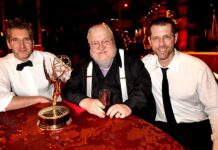
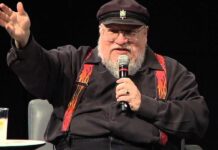
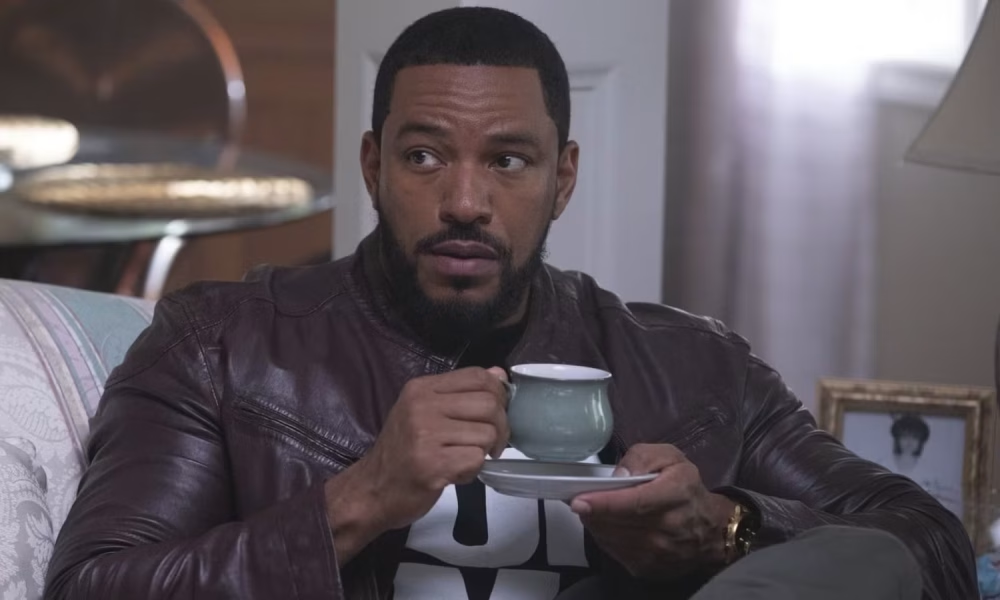














![[Book Review] The Blade Itself (The First Law Trilogy) by Joe Abercrombie](https://bendthekneegot.com/wp-content/uploads/2018/01/1516047103_maxresdefault-218x150.jpg)







